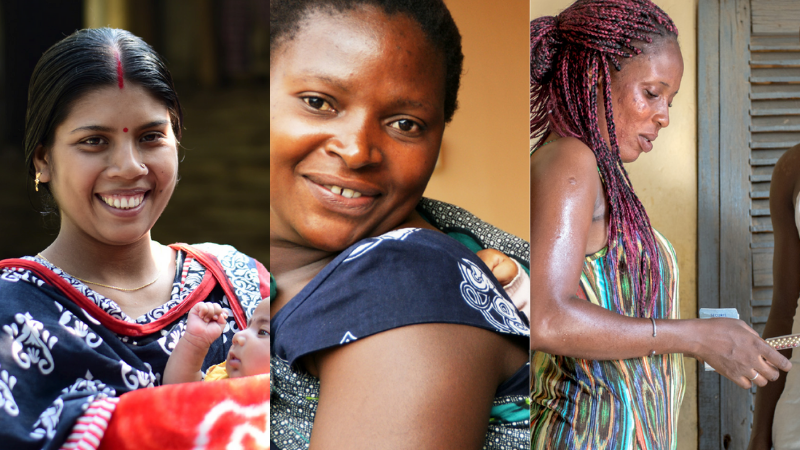New data reveal changes in where women obtain family planning in five countries
Recent Demographic and Health Survey data show that women in Bangladesh, Mali, Nigeria, Senegal, and Zambia have shifted where they obtain their family planning.
With newly available Demographic and Health Survey data, SHOPS Plus examined family planning markets in USAID population and reproductive health priority countries to update its 2018 series of briefs and add one on Mali to the collection. The briefs detail where modern contraceptive users obtain their method and the private sector’s contribution to family planning for each country. The analysis provides implementers, donors, and policy makers with information that could improve programming and decision making. Each brief in the collection highlights trends in a country’s modern contraceptive prevalence rate, method mix, and public and private sector use.

Among the five countries recently analyzed, Mali saw the largest increase in the modern contraceptive prevalence rate among all women. It went from 10 percent in 2013 to 15 percent in 2018. Zambia and Senegal saw slight increases in the percentage of women using contraception, while the rate in Bangladesh and Nigeria remained relatively unchanged. As for the methods used, short-acting, particularly injectables, are commonly used in all five countries, with injectable use increasing in both Mali and Zambia. Notably, long-acting reversible contraceptives have seen an even greater increase, specifically in the use of implants. Excepting Bangladesh, implant use has increased in every country, and implants are now the most common method in Mali and Senegal.
The new data show that there has been a decrease in private sector use in every country analyzed—with the exception of Bangladesh, which saw an increase from 48 percent in 2014 to 53 percent in 2018. In Nigeria, the percentage of contraceptive users obtaining contraception from the private sector decreased from 61 percent in 2013 to 43 percent in 2018. The decrease in the private sector share of the contraceptive market in Mali, Nigeria, Senegal, and Zambia is largely the result of the rise in implant use, as implants are predominantly obtained from public sources.
These trends highlight the importance of ensuring access to all methods in both the public and private sectors. Although the family planning markets differ across every country, there are strategies that could be implemented to better leverage the private sector. These include strengthening social marketing and social franchising programs, expanding contraceptive provision to pharmacies and drug shops, and helping other private cadres by developing or further scaling existing task-sharing/task-shifting policies.
Increasing the availability of a broad method mix through the private sector will allow more women and couples to meet their reproductive intentions with high-quality information, services, and methods of their choice.